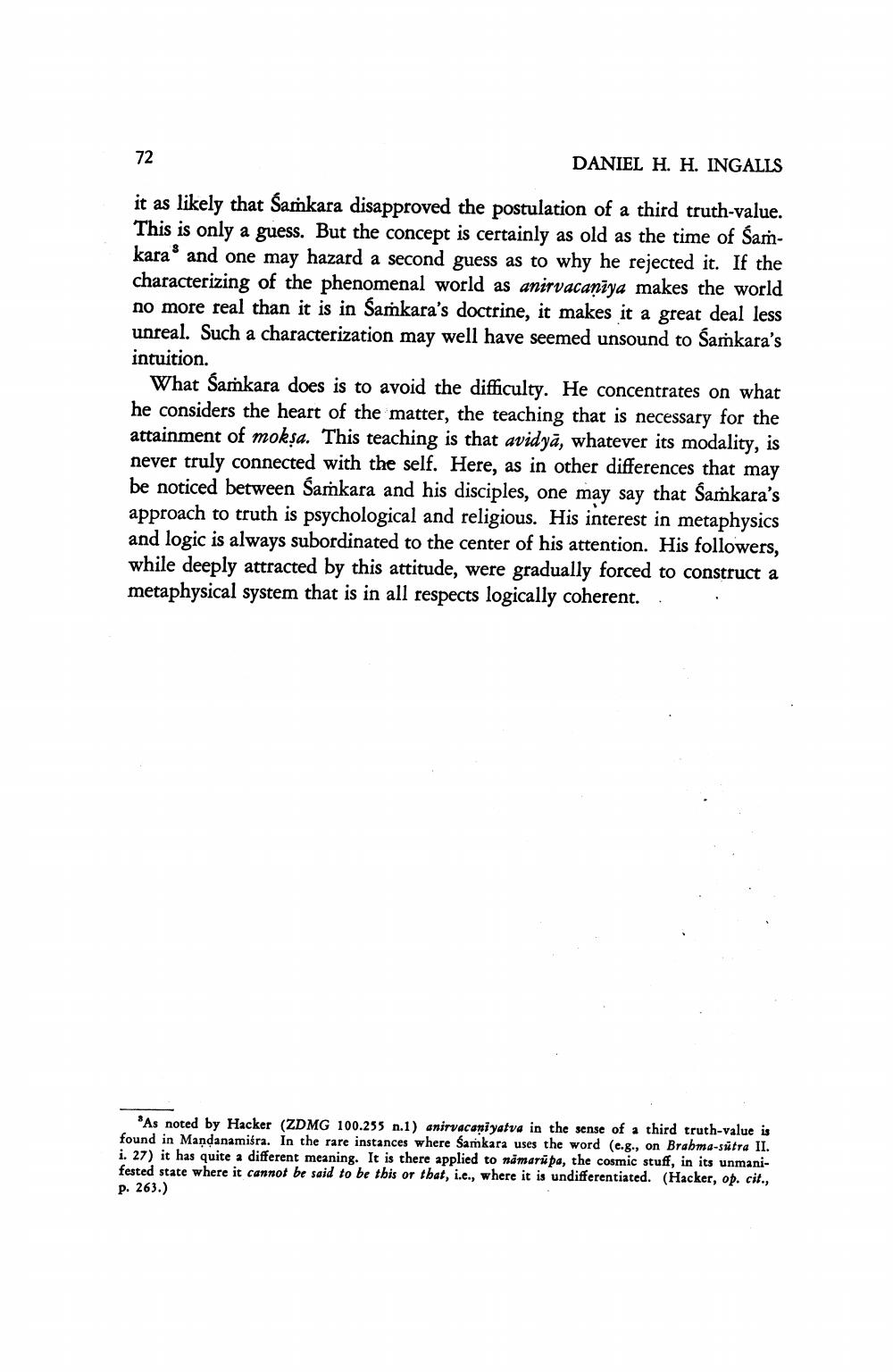________________ DANIEL H. H. INGALLS it as likely that Samkara disapproved the postulation of a third truth-value. This is only a guess. But the concept is certainly as old as the time of Samkaras and one may hazard a second guess as to why he rejected it. If the characterizing of the phenomenal world as anirvacaniya makes the world no more real than it is in Samkara's doctrine, it makes it a great deal less unreal. Such a characterization may well have seemed unsound to Samkara's intuition. What Samkara does is to avoid the difficulty. He concentrates on what he considers the heart of the matter, the teaching that is necessary for the attainment of moksa. This teaching is that avidya, whatever its modality, is never truly connected with the self. Here, as in other differences that may be noticed between Saskara and his disciples, one may say that Samkara's approach to truth is psychological and religious. His interest in metaphysics and logic is always subordinated to the center of his attention. His followers, while deeply attracted by this attitude, were gradually forced to construct a metaphysical system that is in all respects logically coherent. . . *As noted by Hacker (ZDMG 100.255 n.1) anirvacaniyatva in the sense of a third truth-value is found in Mandanamisra. In the rare instances where Samkara uses the word (e.g., on Brahma-sutra II. i. 27) it has quite a different meaning. It is there applied to namarupa, the cosmic stuff, in its unmanifested state where it cannot be said to be this or that, i.e., where it is undifferentiated. (Hacker, op. cit., p. 263.)




